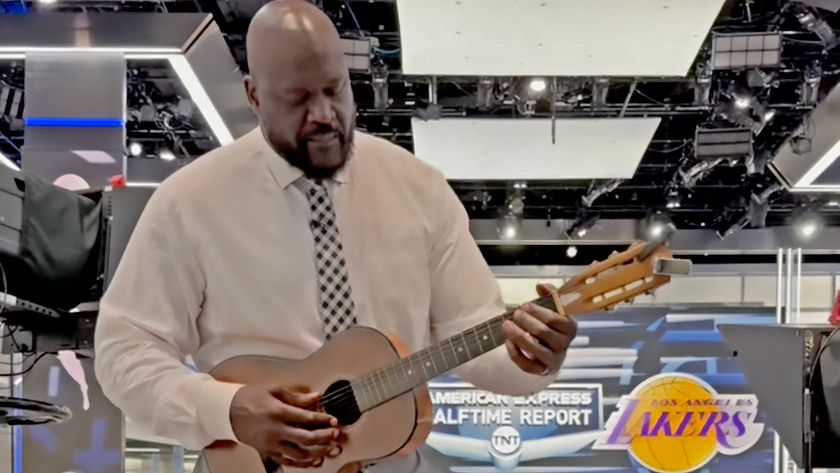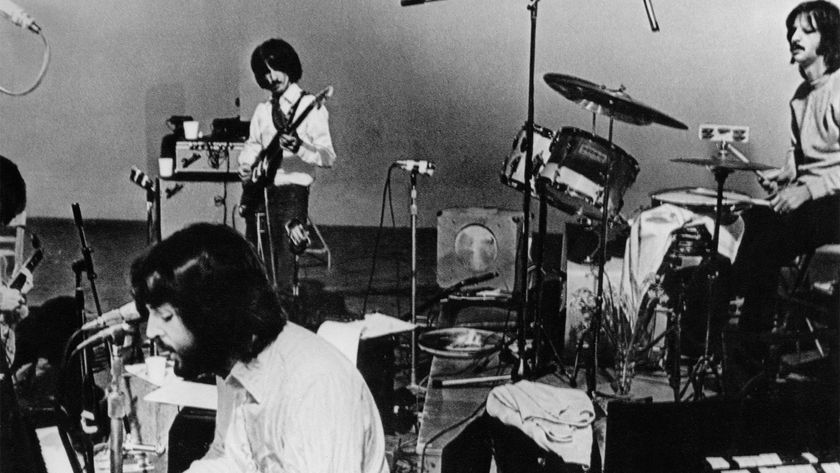“There's a lot of chromatic stuff, and slides in a very tight space, within three or four frets”: Deep Purple guitarist Simon McBride reveals the Ritchie Blackmore lick that's given him the most trouble
The Irish bluesman joined the band in 2022, but is still haunted by one particular slice of Ritchie Blackmore shred

Simon McBride joined Deep Purple in 2022, off the back of an established career as a blues solo artist and as a touring member of Don Airey’s solo band.
So, by replacing the outgoing Steve Morse and becoming the band’s fourth permanent guitarist, he busied himself with understanding the band’s guitar parts intimately.
While he had little issue with the bulk of it – indeed, Morse said he “nailed” the gig – there was one tricky little Ritchie Blackmore lick that had him stumped for a while.
“Most of it is actually not too bad,” he told Ultimate Guitar. “There's one little lick which annoyed me for a long, long time, it's in Lazy. I don't play the same solo he plays; Lazy is one of those songs where I feel I can just improvise a bit more and have fun with it.
“But there's this one lick he does in it, and I said, ‘I have to play that.’ And it's a bitch of a lick,” he expands.
“It's not ultrafast. It's just that there's a lot of chromatic stuff in it and slides in a very tight space, within three or four frets, and that's it. So that, to me, is the hardest thing about playing Purple.”

Blackmore wasn’t necessarily known as a particularly speedy or technical player, and McBride acknowledges that. But he’s been quick to praise his melodic sensibilities.
Get The Pick Newsletter
All the latest guitar news, interviews, lessons, reviews, deals and more, direct to your inbox!
“Even Highway Star, the fast part in that, it's fast, but it's not John Petrucci from Dream Theater or something ridiculously fast, but it fits the song.
"Everything else that he played was more just melodies. Ritchie played for the song most of the time. But yeah, that lick in Lazy – that still haunts me every night when I come up to it. I'm like, ‘Oh shit, don't screw it up!’”
Guesting on Guitar Player's No Guitar is Safe podcast in 2022, McBride, who host Jude Gold called “a cold-blooded killer on guitar,” countered those who felt Morse wasn’t the right man for Deep Purple.
He believes Morse was the perfect replacement for Blackmore “because he was different. So sometimes when I play his stuff, it's not something I'd normally play, but it's cool to do. As a guitarist, you're always looking for new challenges. He's from the era of giants with Paul Gilbert and Satriani. You've gotta love him.”
Speaking to Guitar World that same year, he spoke about his leftfield approach to learning some of Morse’s parts, particularly the unison lead lines he’d share with keyboardist Don Airey.
“To learn things, I don’t necessarily pick up the guitar for the first two weeks; I’ll just sit and listen to the songs over and over until I’m sick of listening to them. When I actually sit down with the guitar, I like to be able to nearly play it already just from familiarity, knowing the chords and what positions they’re being played in.”
He continued, “I don’t think there’s too much that will be challenging for me. It’s mainly just remembering all the parts as a whole. It’s not like just learning a normal set with standard issue songs, which are verse/chorus/verse/chorus/solo and done. They have all these alternate endings and, as you said, those mad sections with unison lines.”
Deep Purple recently gave a very literal performance of Smoke on the Water – a song McBride says many guitarists are playing wrong. They played the song on the wakers of Lake Geneva in Montreux, where the song has its origins, with smoke billowing out from behind them.
A freelance writer with a penchant for music that gets weird, Phil is a regular contributor to Prog, Guitar World, and Total Guitar magazines and is especially keen on shining a light on unknown artists. Outside of the journalism realm, you can find him writing angular riffs in progressive metal band, Prognosis, in which he slings an 8-string Strandberg Boden Original, churning that low string through a variety of tunings. He's also a published author and is currently penning his debut novel which chucks fantasy, mythology and humanity into a great big melting pot.

"Ritchie has actually been told by his cardiologist not to get in a plane." Ritchie Blackmore suffered a heart attack a year and a half year ago and has been warned not to travel by air

“Yes, I can do it all.” Shaquille O’Neal stuns fans by playing a Three Days Grace song on an acoustic guitar. Or is it a ukulele?









